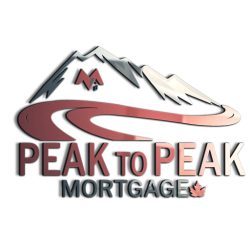New to Canada financing guidelines can be complex to navigate for those new to the country and looking to purchase a home. The same can be said for anyone who is Returning to Canada, or is a Canadian citizen working outside of the country and looking to purchase a 2nd home.
The information in this post will explore some of the available financing options for New to Canada, and some of the guidelines the banks are currently working with. The information below does not encompass of all the Canadian banks’ policy, but is a sample of what you might encounter when applying for a mortgage with a Canadian financial institution.
It is important to understand that the Canadian banks base their lending policy on risk assessment. The income; employment; down payment; and credit history components of your application, as well as which country(ies) you are earning your income in, all play a role in how the banks will determine your mortgage eligibility.
Depending on your circumstances, you may fall into one of these categories:
- Temporary Resident; you are here with a valid work permit; may intend to apply for permanent residency when you are here; and you are working and filing taxes in Canada.
- New Permanent Resident; you are within the 5-year mark of having received your permanent residency status; and you are working and filing taxes in Canada.
- Non-Resident; you do not have a valid work permit to work in Canada, and you are earning your income and filing your taxes outside of Canada. If you are a Canadian citizen earning your income outside of Canada, you will be treated as a Non-Resident for qualification.
For Temporary Residents and Non-Residents, you must meet requirements under the Prohibition on the Purchase of Residential Property by Non-Canadians Act.
Temporary Resident
Properties must be owner occupied. You cannot already own a residential property in Canada; only one residential property is permitted. Available financing falls under 2 categories: Insured and Conventional.
Loan-to-Value
Insured
- For purchase prices up to $1,000,000, you may be eligible for up to 90% financing with high ratio mortgage insurance. A purchase with less than 20% down is called a high ratio mortgage and must be insured with one of Canada’s mortgage insurers.
- The maximum amortization for a high ratio mortgage is 25 years.
Conventional
- Conventional mortgage financing is available up to 80% financing, depending on each lender’s sliding scale, and does not require mortgage insurance. A sliding scale example would be up to 80% financing on the first $1,500,000 of the purchase price, and then 50% on the remainder.
- The maximum amortization for a conventional mortgage is 30 years.
Employment & Income Confirmation
- Must have relocated to Canada within the last 24 months; must be eligible to work in Canada, and must be employed in Canada for a minimum of 3 months.
- Must have a work permit that is valid for a minimum of 183 days at time of purchase.
- A temporary resident who is purchasing a residential property with their spouse or common-law partner does not need to meet the 183 day work permit rule if the spouse or common-law partner is a Canadian Citizen or Permanent Resident. This is also the case if the property being purchased is outside a Census Agglomeration (CA) or a Census Metropolitan Area (CMA).
- Business for Self is not eligible.
- A signed Letter of Employment is needed from your employer to confirm your start date, position, wages, and that you are not on probation, as well as your most recent paystub. If you are paid hourly, the letter must state your hourly rate, and your minimum “regular” or “guaranteed” hours per pay period.
- If you are still earning an income from your home country, it might be recognized to assist with your qualification depending on your level of down payment, and how well the income can be verified.
Credit History
- If you are coming from any country outside of the US, you will have to obtain a copy of your own credit report from your home country. Equifax and Trans Union are common providers of international credit files, although, depending on where you are from, you may be working with a different provider. If you credit report is not in English, it will have to be professionally translated.
- If a copy of your credit report is not available, one or a combination of the following may be considered instead:
- Six months of credit card statements from your home country demonstrating satisfactory repayment OR
- Six months of bank statements demonstrating satisfactory credit repayment. The bank statements provided should represent a day-to-day operating account demonstrating regular banking activities.
- A Letter of Reference from your home country financial institution where you have current borrowings, and/or banking activity.
Down Payment
- For a high ratio insured mortgage, the minimum down payment is 10%, and must come from your own resources.
- For a conventional mortgage, the minimum down payment is 20% (subject to the lender’s sliding scale). Gifted funds from immediate family members are acceptable. Immediate family includes: parents, grandparents, siblings, and children.
- The principal residence in your home country must be sold, or you need to qualify to carry both properties.
- All down payment funds must be verified.
Debt Servicing Requirements
- Typically, the mortgage qualification process involves 2 debt service ratios, the GDS (Gross Debt Service) and TDS (Total Debt Service). These are debt service ratios that lenders use to determine your eligibility for a mortgage. The GDS factors the mortgage payment for the home you are buying + the property taxes + the strata fee (if there is one) + average heating costs and is divided by your verified income. The GDS maximum is 39%.
- The TDS factors all of the payments for the GDS + any other liabilities you have, for example, student loan payments; credit cards; lines of credit; vehicle loan or lease; child support or alimony, to name a few. The TDS maximum is 44%. Any debt repayments that are still ongoing in your home country will have to be factored into the overall debt service ratios.
- If your credit score is 680 or lower, the GDS & TDS ratios may be reduced to 35% & 42%.
- Lenders like to see a minimum credit score of 650.
- When we are calculating the GDS and TDS, we must use a “stress test” rate or Minimum Qualifying Rate (MQR) that is the greater of the Bank of Canada qualifying benchmark rate (currently 5.25%) or 2% above your contract interest rate. So, if the rate you were obtaining was 6.00%, the rate we would have to use to calculate the payments for the debt service ratios would be 8.00%. The 8.00% being the “stress test” rate.
- These are the same income-to-debt ratios that Canadians must meet.
New Permanent Resident
This program is for applicants who have immigrated to Canada within the last 60 months, and have their Permanent Resident status. If you have your PR status, you should apply for your Social Insurance Number that starts with a “7.”
If you have been in Canada long enough to have an established Canadian credit history, and have steady Canadian employment, you will be qualified under regular guidelines. Depending on your overall application, you may still have to provide a credit report from your home country if you are repaying any liabilities there, ie student loan, mortgage, credit card.
Loan-to-Value
Insured
- For purchase prices up to $1,000,000, you may be eligible for up to 95% financing with high ratio mortgage insurance. The minimum down payment calculation is 5% on the first $500,000 of the price, and 10% down on the portion above $500,000 to a maximum of $1,000,000.
- The property must be owner occupied.
- Maximum 25 year amortization.
- Maximum of one property owned in Canada for an insured mortgage.
Conventional
- Maximum of two properties owned in Canada for a conventional mortgage.
- Conventional mortgage financing is available up to 65% financing, depending on the lender’s sliding scale. Financing is capped at the lesser of 65% or the sliding scale.
- Maximum 25 to 30 year amortization – depending on the lender.
- Conventional mortgage applications may be considered for both owner occupied, and non-owner occupied properties.
Employment & Income Confirmation
The documents may vary depending on if you are obtaining a high ratio insured or a conventional mortgage.
Insured
- Must be employed full-time in Canada for a minimum of 3 months.
- Applicants transferred to Canada under relocation programs are considered on an exception basis.
- A signed Letter of Employment is needed from your employer to confirm your start date, position, wages, and that you are not on probation, as well as your most recent paystub. If you are paid hourly, the letter must state your hourly rate, and your minimum “regular” or “guaranteed” hours per pay period.
Conventional
- This lending policy is based on new Permanent Residents or Canadians who returned from a foreign country to live in Canada on a permanent basis, and who cannot meet standard income confirmation guidelines but whose income is reasonably expected to increase and/or have not had sufficient time to build credit history that would allow them to qualify under traditional lending guidelines.
- Information on your previous employment and an outline of how your assets were accumulated will be required.
- Must be employed full-time in Canada for a minimum of 3 months.
- A signed Letter of Employment is needed from your employer to confirm your start date, position, wages, and that you are not on probation, as well as your most recent paystub. If you are paid hourly, the letter must state your hourly rate, and your minimum “regular” or “guaranteed” hours per pay period.
- Applicants that are Business For Self will be considered with a 2-year history of self-employed earnings filed in Canada.
- If you are still earning an income from your home country, it might be recognized to assist with your qualification depending on your level of down payment, and how well the income can be verified.
Credit History
- If you are coming from any country outside of the US, you will have to obtain a copy of your own credit report from your home country. Equifax and Trans Union are common providers of international credit files, although, depending on where you are from, you may be working with a different provider. If you credit report is not in English, it will have to be professionally translated.
- If a copy of your credit report is not available, one or a combination of the following may be considered instead:
- Six months of credit card statements from your home country demonstrating satisfactory repayment OR
- Six months of bank statements demonstrating satisfactory credit repayment. The bank statements provided should represent a day-to-day operating account demonstrating regular banking activities.
- A Letter of Reference from your home country financial institution where you have current borrowings, and/or banking activity.
- For high ratio insured mortgage applications:
LTV 90.01%-95%
- Canadian or International credit report; or
- Rental payment history confirmed via letter from landlord and supported by 12 months bank statements; AND
- At least one utility payment confirmed via letter by service provider or 12 months bill statements confirming regular payments.
- All payments must be timely.
LTV 90% or less
- A letter of reference from the borrower’s financial institution in their country of origin confirming a minimum 6 months’ satisfactory banking relationship; or
- 6 months verifiable bank statements from a recognized Canadian financial institution or from a financial institution in the country of origin.
• All letters of must be in English or French.
Down Payment
Insured
- When the loan-to-value is 95%, the down payment must come from your own resources.
- When the loan-to-value is less than 95%, the down payment can come from a Corporate Relocation Subsidy or be gifted by an immediate family member (parents, grandparents, siblings, children).
- All down payment funds must be verified
Conventional
- Minimum down payment is 35% and is subject to the lender’s sliding scale.
- In addition to the 35% down payment requirement, applicants must provide evidence of the equivalent of 12 months’ principal, interest, and property tax payments (PIT), in liquid savings in Canada.
- Gifted down payment and/or the 12 months’ PIT is only available for owner-occupied properties where applications have a Total Debt Service Ratio of less than 80%. The gifted funds must be from immediate family, (parents, grandparents, siblings, children).
- For Non-Owner Occupied properties, you may have to demonstrate a minimum of $500,000 in non-gifted liquid assets in Canada, for a minimum of 90 days prior to the application date. Additionally, the down payment or the additional $500,000 in liquid assets cannot come from family in the form of a gift. The net worth requirement is in addition to the funds for the down payment, but may include the 12 months PIT.
- All down payment funds must be verified
Debt Servicing Requirements
Insured
- Typically, the mortgage qualification process involves 2 debt service ratios, the GDS (Gross Debt Service) and TDS (Total Debt Service). These are debt service ratios that lenders use to determine your eligibility for a mortgage. The GDS factors the mortgage payment for the home you are buying + the property taxes + the strata fee (if there is one) + average heating costs and is divided by your verified income. The GDS maximum is 39%.
- The TDS factors all of the payments for the GDS + any other liabilities you have, for example, student loan payments; credit cards; lines of credit; vehicle loan or lease; child support or alimony, to name a few. The TDS maximum is 44%. Any debt repayments that are still ongoing in your home country will have to be factored into the overall debt service ratios.
- If your credit score is 680 or lower, the GDS & TDS ratios may be reduced to 35% & 42%.
- Lenders like to see a minimum credit score of 650.
- These are the same income-to-debt ratios that Canadians must meet.
Conventional
- There is debt servicing flexibility for strong applications with a minimum of $500,000 verified non-gifted assets in Canada for a minimum of 90 days, over and above the down payment.
- Typical TDS (Total Debt Service) should be no more than 44%, but may be considered up to 80% depending on the strength of the application.
Non-Resident
If you are earning your income and filing your taxes outside of Canada, your application will be treated as Non-Resident, even if you are a Canadian citizen.
Financing for non-residents is only available as Conventional financing.
Available financing will depend on:
- Whether the property is owner occupied or a rental.
- Property location, property value, and property type.
- The Loan-to-Value may be available up to 80% depending on the overall application.
- The quality and availability of supporting documents to verify your income.
- Available credit reports and/or supporting documents to prove credit worthiness.
Application/Underwriting Details:
- The maximum available amortization is 30 years.
- For owner occupied/2nd home purchases, gifted down payments are considered if from immediate family members.
- Gifted down payment funds are not allowed for rental property purchases.
- A full appraisal will be required.
Important to Note:
- You will need a Canadian bank account for the mortgage payments. Most Canadian banks have a requirement for you to be in a branch in person to have the account fully opened.
- Depending on the lender you are working with, you may have to sign your closing documents with your lawyer, in person, in Canada.
- You will need a Canadian lawyer to assist you with the Completion of the purchase.
- Canadians who are temporarily relocated to another country by their employer may not necessarily be considered Non-Resident, and may qualify under standard lending guidelines.
- For more detailed information, visit our Foreign Buyer Financing page.
If you are New to Canada or a Non-Resident looking to purchase a property in Canada, working with an experienced mortgage professional can be very helpful to navigate the rules and lending guidelines, and can help make the process a little bit easier.
Annie has over 25 years of experience working with Non-Residents and New to Canada applications.


